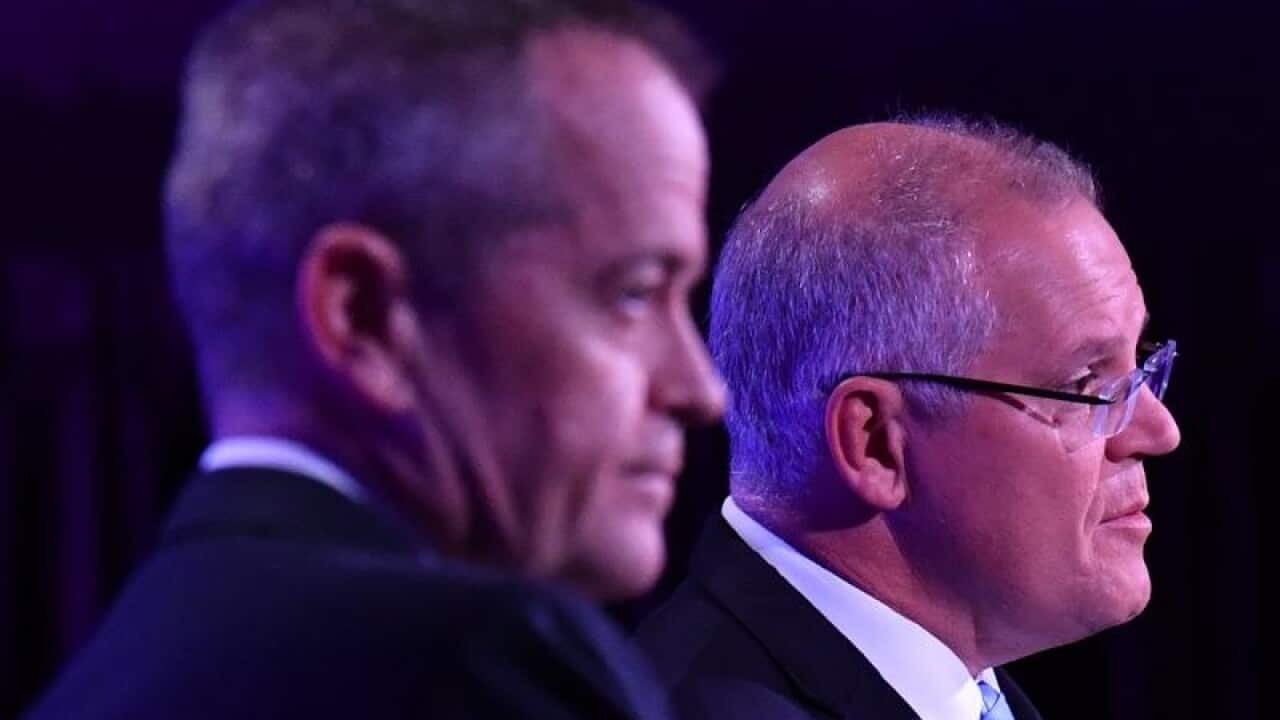Bill Shorten will invoke Gough Whitlam's iconic "It's Time" campaign cry, while Scott Morrison will insist "now is not the time" in their final major speeches before the federal election.
The Labor leader will deliver a speech in Sydney's western suburbs at the same venue used by former Labor prime minister Gough Whitlam in 1972 for his famous It's Time address. Mr Shorten said he wanted to speak at a place "that means something to Labor and Australia".
Mr Shorten said he wanted to speak at a place "that means something to Labor and Australia".

Gough Whitlam's iconic "It's Time" message is one of the most successful political campaigns in Australian history. Source: AAP
His speech is expected to draw parallels between this election and the 1972 contest as a "generational decision" facing voters.
The key theme of his speech is a "vote for change".
Climate change is expected to be a major focus, while the Labor leader will also seek to differentiate the "coalition of chaos" with his "united and stable" alternative team. Meanwhile, the prime minister will be at the National Press Club in Canberra on Thursday to make his final major speech of the five-week campaign.
Meanwhile, the prime minister will be at the National Press Club in Canberra on Thursday to make his final major speech of the five-week campaign.

Labor Leader Bill Shorten is preparing to deliver his final major speech of the campaign. Source: AAP
Voters go to the polls on Saturday but almost one-third have already cast their ballots.
Mr Morrison is expected to focus his pitch on the coalition's central theme of economic growth.
"My message is this: now is not the time to turn back," he is expected to say. "Now is the time to get on and keep on with the work of building our economy by backing in the choices Australians are wanting to make every day and to enable them to plan for their future with confidence."
"Now is the time to get on and keep on with the work of building our economy by backing in the choices Australians are wanting to make every day and to enable them to plan for their future with confidence."

Prime Minister Scott Morrison at a Sydney fresh produce market ahead of his speech to the National Press Club. Source: AAP
The prime minister will also take aim at Labor's alternative "big taxing, big spending" agenda.
"This week is about focusing Australians on that choice and the price of that choice."
As of Wednesday morning, about 27 per cent of enrolled voters or 4.5 million people had either sought a postal ballot or lodged a pre-poll vote.
It's widely predicted the record of 31 per cent set in 2016 will be beaten before the polls open on Saturday.

